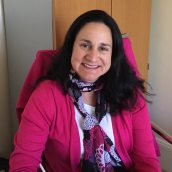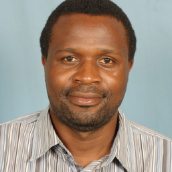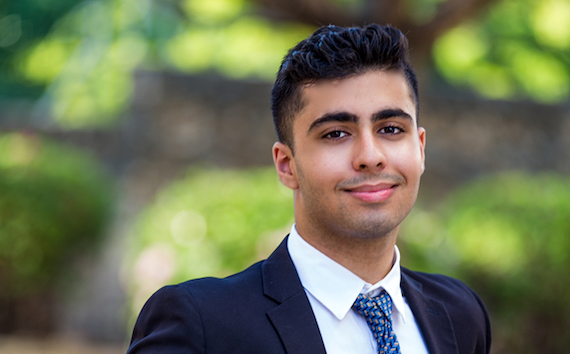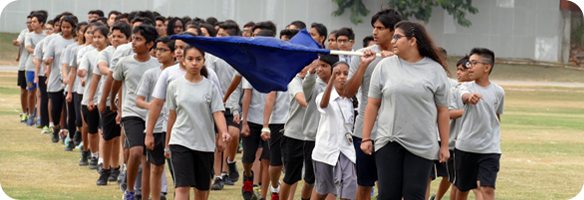
Diploma Programme
The Aga Khan Academy Dhaka is an International Baccalaureate (IB) authorised World School and has been authorised for the Diploma Programme (DP). The DP is a demanding, pre-university-level course of studies. It is internationally recognised by over 2,000 universities worldwide.
The DP has a reputation for rigorous assessment of student achievement. Each student’s performance and levels of knowledge are examined internally by teachers according to set criteria. They are also assessed externally by independent examiners according to global standards applied to all IB schools.
Our students study all the subjects covered in a traditional, broad curriculum, including languages, social sciences, experimental sciences, mathematics and the arts. The DP also takes the curriculum a step further through three unique programmes:
- Theory of knowledge;
- Creativity, activity, service; and
- Extended essay.
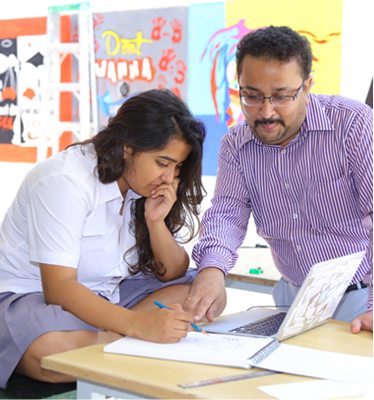 Theory of knowledge
Theory of knowledge
Theory of knowledge (TOK) is an interdisciplinary requirement unique of the DP. It encourages students to reflect on the knowledge they gain both inside and outside the classroom.
One hundred hours of classroom time are dedicated to the TOK programme. We challenge our students to question the nature of knowledge across disciplines, to recognise biases and to analyse evidence using rational thought and argument. By making our students consider and appreciate different perspectives, TOK contributes towards a pluralistic outlook.
Creativity, activity, service
Creativity, activity, service (CAS) is an important component of the IB curriculum and is required for every DP student at the Academy. Our students participate actively in a variety of creative endeavours, physical activities and community service projects. They develop self-confidence, teamwork and leadership skills, and a sense of civil responsibility.
Students take part in sustainable projects that have real and lasting effects on the greater Dhaka community. They develop strength of character and an understanding of their ability to bring about change.
The CAS programme is valued for its power to transform the lives not only of students but also the people they work with. It serves as a platform for interpersonal exchange, personal growth and greater understanding of the issues we face as a global community.
Extended essay
The extended essay (EE) requires students to pick a subject of their choice and research and develop it into a 4,000-word essay. Students may choose to investigate a subject from one of their higher-level courses more deeply. Or they can broaden their academic experience by researching a subject in a field they are not currently studying.
Through the EE, we introduce students to the kind of independent research and writing skills expected at the university level.
For further information on the IB Diploma Programme at the Academy, please see the admission requirements or contact us.
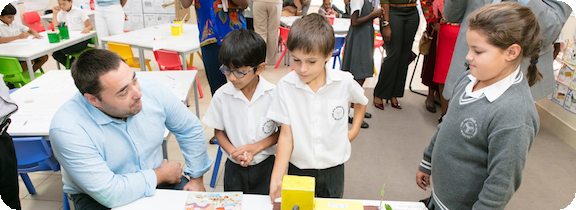
Working with Us
The Aga Khan Academy Maputo is committed to hiring the best educators and staff from within the local community, nationally and internationally. We welcome your interest in working with us and invite you to explore the opportunities available.
Here at the Academy, we recognise that the knowledge, skills and experience of our staff are a vital part of achieving our commitment to excellence. The Academy is strongly committed to continuing education for our faculty, and we provide regular opportunities for professional development.
We are also proud to offer an outstanding work environment with excellent facilities, and a unique and diverse school community.
Employment opportunities at the Academy are posted on the AKDN Career Centre. Listings are updated regularly, so be sure to check back often.
Theresa Urist: A passion for education
An Interview with Theresa Urist, Global Director of University Counselling at the Aga Khan Academies
Theresa Urist has always loved to learn. Growing up in a rural community in New York state, where many of her classmates did not go on to college, her thirst for education led her to Stanford, where she earned a B.A. with Honours in American Studies and tutored high school students in her spare time. She realised that she loved teaching as much as she loved to learn, so she secured a spot in the Master of Education programme at Harvard University before becoming a high school teacher and, later, a university counsellor.After more than two decades as a counsellor in the United States, where she directed college counselling at three different schools, Theresa’s desire to support students from poor communities led her to the Aga Khan Academies, where she became the Global Director of University Counselling in 2015. Her role is essential to the mission of the Academies, which aim to produce effective, ethical leaders with the skills and knowledge to support positive development in their societies. As the networks’ university expert, she coordinates the university counselling process so that the students are admitted to and select universities where they will flourish in their chosen fields.
Aga Khan Academies writer Alia Dharssi sat down for a conversation with Theresa about her passion for education, her work at the Academies and what makes her tick. Their conversation has been edited for clarity and length.
Alia: Can you tell me about yourself and how you wound up becoming a university counsellor?
Theresa: I was born and raised in a very small town on Long Island in New York State. I wanted to be a journalist as a kid and wound up writing for my college daily newspaper, where I had a 1am news deadline. It was crazy and frenetic. I realised that’s not what I wanted to do, but I had also begun tutoring at a nearby school and I really, really loved working with the students. That experience put me in the direction of education. I earned a Masters of Education from Harvard and became an English and history teacher. In 1995, I answered the call to become an interviewer for Harvard undergraduate admissions. I loved talking to students about their future plans and goals during the interviews, so I put the pieces together and entered the field of university counselling.
Alia: What makes you passionate about education?
Theresa: The way I see it, education is the key to social mobility. When students – like the ones on full financial aid at the Academies who are selected through our talent identification programme – become educated, it’s something that doesn’t just benefit them. It benefits their family and their community and has a ripple effect. I see it as a way that entire communities can get themselves out of poverty in one generation. Education is the most concentrated way you can effect lasting social change. That’s what gets me up in the morning every single day to do the work that I do.
Alia: Have you always thought about education in this way?
Theresa: Education is always something that has been at the forefront of my mind. My parents were well educated, but I grew up in a very rural community where a lot of people had not studied beyond the secondary level. So, when I went off to university at Stanford 3,000 miles away from home, it was an eye-opening experience. I was surrounded by very motivated people with a lot of interesting ideas. I had been a big fish in a little pond in my secondary school because I was somebody who was very hungry for education. I tried to access a lot of educational opportunities despite the fact that I attended a regional, rural public high school that did not offer the most enriching academic experience. College was the first time in my life I was surrounded by students who had had very different life experiences, who had gone to schools that were very academically rigorous, who were incredibly curious. It was vibrant and transformative.
Alia: That sounds like an amazing experience. You started working at the Academies after two decades of working as a counsellor in the US. What inspired you to take the job?
Theresa: When I heard about the job, it seemed like a perfect fusion of my interests. The mission of the Academies in terms of providing educational opportunities for students regardless of their means is one that spoke to my heart. In two decades of counselling, I had gone from working in college prep, private schools to working at an urban public school with very low-income students. There are so many talented kids whose socioeconomic background prevents them from accessing very good academic opportunities in places where they’re going to flourish. And so, in my own job search, I was looking for an organisation that provided such opportunities for students in need. I was also interested in international education – in addition to being a US citizen, I’m also a Swiss citizen and I’ve spent a good amount of time overseas – so this position really spoke to me.
Alia: What kinds of struggles have you seen students from poor socioeconomic backgrounds face when it comes to getting a good education?
Theresa: In my last role in the US, I was working in an urban public charter school with low-income students from all over the world. The majority of my students were first generation, meaning their parents had immigrated to the US. They did not speak English at home and they would be the first in their families to access higher education. I helped them navigate the system. Many of their families came from countries where poverty was a problem. Just getting to the US was a big hurdle. In addition, education is very, very expensive in the US, so it was a challenge for those students to figure out how to finance their education.
Alia: That sounds quite different from your role at the Academy. How do the two experiences compare?
Theresa: I certainly have a lengthy background in university counselling, but when I was based in one single school, it was quite limiting in a lot of ways. My work at the Academies requires a much larger scope in terms of finding what universities are a best fit for particular students. I had good working knowledge of US and Canadian schools coming in. What’s newer for me is some of the other schools beyond that, particularly schools in the UK. It’s given me a greater global perspective on education in terms of the different programmes that exist and the ways in which universities are trying to position themselves globally.
Alia: Can you tell me about your trips to the Academies? What was your first impression?
Theresa: My first visit was to Hyderabad. I found the students compelling and the facilities stunning. Everything exists in the service of students and forwarding their academic and personal growth. When I first made a visit to the Mombasa school, I found the level of arts that students were doing and the level of introspection that went into what they were creating was incredibly deep and heartfelt. It was more advanced than what I’d seen at other schools. A lot of the students’ art projects dealt with issues of social justice and presented very clear messages that made me hopeful. Seeing that level of attention given to something that is often peripheral at other schools speaks volumes about the Academies.
Alia: Absolutely. Why is your role important to the Academies’ vision?
Theresa: As we grow as a network, we want to make sure we are offering a consistent quality of university counselling services across campuses, so that’s a really important part of my work. We want colleges and universities across the globe to know who we are and why they should admit our students and fund them, so a big part of my job is conducting outreach to universities and colleges. When a university takes a risk on a student and that student does well, then it knows that it has a viable academic candidate and will admit more and more students from our schools. My job is to try to create pipelines for students at academically rigorous universities that recognise who we are and why our students are so interesting and compelling.
I also conduct some professional development like workshops for faculty members where they receive training about best practices for writing recommendations for students. Both campuses are now on the Naviance platform, which is an online portal that allows students to track all their applications and send documents to universities electronically. We also track data on the admissions process on the platform.
Alia: That’s important work, but now for a less serious question. What do you do when you’re not busy counselling?
Theresa: I love to cook and bake. In particular, I like making fancy cakes and tortes. Every year, during the holidays, I create a gingerbread house. They’re not basic ones; I have architectural plans. Last year, I made a church with candy stained glass windows. The year before, it was a Victorian house. Every year I do a different structure.
Alia: That’s quite a hobby. Do you eat the houses?
Theresa: Yes, eventually I do. My friend’s kids help me decorate the house, it stays up and then it gets destroyed. So that’s one of my hobbies. To balance my baking interests, I was a distance runner and had run a bunch of marathons, but I had to stop after an injury. But I still really like to be active. I like hiking and skiing and being outside.
Alia: Is there anything else you’d like to say?
Theresa: I love the work I do. I feel like mine is a really important role, so I’m just very grateful for the opportunity to work on behalf of the Academies.
Zviko Katsande: Zimbabwean educator embodies global-mindedness
Jemin Patel (Class of 2018): A journey of hard work, passion and striving for excellence
Jemin Patel’s journey to where he is now is the result of hard work and passion, values he picked up during his time at the Aga Khan Academy Hyderabad. Yet his story started sometime before this, when he was selected to attend the large, 100-acre Academy through a full scholarship.
Starting in the Academy as a Grade 8 student, Jemin felt all the nervousness of moving to a new place and starting at a new school. He felt out of place, not knowing whether he would succeed. Although he knew this would be difficult, he embraced the notion of working hard, instead of working smarter.
“I’ve learnt that hard work always wins,” he said. “People say, ‘work smart, not hard’. I could not disagree more. Working smart makes you efficient, whereas working hard with a focused mindset makes you a high performer.”
Although it has been five years since he graduated, Jemin continues to visit the Academy to coach and interact with students. He expressed how he felt like a big brother passing on the torch and imparting wisdom he would have loved to have during his time at the Academy. During his most recent visit, Jemin met the founder of the newly formed SAGE (Sexuality and Gender Expression) club at the Academy and felt so proud of the students.
Now, working at one of Canada’s top accounting and consulting firms, Ernst & Young, specialising in audit and assurance services, Jemin still stands by the notion, “hard work always wins.”
“It’s not about perfection, it’s about striving for excellence,” he said. “Putting in a focused and genuine effort into everything you do is all that matters.”
Interview conducted by DP2 student Samhitha Paruchuri from the Aga Khan Academy Hyderabad.
Alqaim Lalani: Graduating from the Academy to write a new chapter
For Alqaim Lalani, his recent graduation from the Aga Khan Academy in Mombasa brings him one step closer to furthering his dream of attaining a deeper understanding of how economics and politics affect a society and the daily life of its inhabitants. Alqaim will attend New York’s Columbia University in the Fall as a prestigious Kluge Scholar, where he plans to major in these subjects.
“I have much appreciation for the interdisciplinary study of economics and politics. These two areas of knowledge really dictate the decisions made by leaders, whether that be on the global stage or an institutional platform,” he states.
Even at this young age, Alqaim has engaged in thoughtful and careful consideration of how economics can help leaders plan to avert an uncertain future in their countries.
“In the world we live in, where natural resources and commodities are increasingly scarce, coupled with a rising population growth, economics to me really seems like a subject that is instrumental in planning ahead for the turbulent times to come,” he states with confidence.
Alqaim says he was accepted in the Columbia Undergraduate Scholars Programme for “his intellectual pursuits, extracurricular achievements, and promise for future.” He says being in a residential programme at the Academy helped him follow a routine and helped him navigate his rigorous workload more effectively. He also relished being a “big brother” to the younger students in the dorm.
Extracurricular activities and public service undertakings are an integral part of the International Baccalaureate Programme (IB) curriculum at the Academies. As part of his public service requirement, Alqaim pioneered a cancer initiative called Tumaini La Maisha (Hope For Life). He started this in 2015 for children battling cancers at the Muhimbili National Hospital in Tanzania. Under this initiative, Alqaim engaged young cancer patients and their parents in arts and crafts activities as part of a healing process and also to raise money for their medical treatment. This initiative is ongoing and has expanded to Kenya and Uganda. The parents and patients make bags and other crafts which are sold to the public.
“My personal involvement with the project is distributing the bags once they are made, marketing the products, making orders for the materials that are used in their production and raising awareness about the severity of pediatric cancer in East Africa.”
Another tenet that the Academy places immense importance on is pluralism. What is Alqaim’s takeaway from this?
“In the first year of the diploma programme at the Academy, I travelled to Rwanda with other history students to learn about the Rwandan Genocide. This is perhaps one of the most memorable experiences I had. At the Academy, we are taught about the importance of pluralism and understanding. Yet, when I went to Rwanda and saw the atrocities of the genocide, it reminded me that everyone does not share these values. It also reminded me how significant my Academy education was in allowing me to become an individual that recognizes the wrongful nature of fear-mongering, propaganda and hate speech that are so pervasive today.”
Alqaim holds dear the many lessons learned at the school. He says they have opened his eyes and transformed his old way of thinking.
“Theory of Knowledge taught me to ask the deeper questions, share my opinion fervently while appreciating and respecting views that may be diametrically opposed from my own. Governance and Civil Society provided a nurturing environment for community service projects such as monetary and marketing support.
Projecting an aura of congeniality, Alqaim says, “At the Academy, I have acquired a greater understanding on the importance of ethical leadership and an enduring commitment to whatever project I undertake.”
Related article: AKA Mombasa Student Builds Social Entrepreneurship Initiative
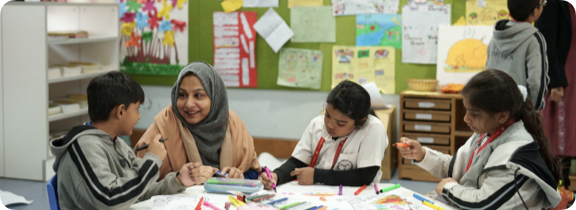
Meet the Staff
Senior leadership team |
|||||
| Head of Academy |
Suvina Shunglu |
||||
|
Principal Senior School |
Fahmida Chowdhury |
||||
|
Principal Junior School |
Shatila Reza |
||||
| Dean of Studies |
Joseph Sydney Hamkari |
||||
| Head of Finance |
Karim Nathu |
||||
| Dean of Admissions |
Paul Davis |
||||
Administration and support services |
|||||
|
Personal Assistant to Head of Academy |
Fariza Sddika | ||||
| Finance Manager |
Abdullah Al Jaber |
||||
| Head of Administration |
Malik Mahemood |
||||
| Facilities and Maintenance Manager |
Kazi Atiqul Haque |
||||
| IT Manager |
Faruk Sikder |
||||
| Head of Human Resources |
Annie Sharmeen |
||||
| Human Resource Specialist |
Ayesha Sirajee Leena |
||||
| Security and Transport Manager |
Mahmudul Hasan |
||||
| Tansport Supervisor |
Mustafizur Rahman |
||||
| Procurement Supervisor |
Delwer Hossain |
||||
| Communications Manager |
Monjure Alahi Haider |
||||
| Admissions Manager |
Momtaz Mumu |
||||
| Food Services Manager |
Mohammad Mainuzzaman |
||||
Junior school faculty |
|||||
| Principal |
Shatila Reza |
||||
| PYP Coordinator |
Tanjina Hossain |
||||
| Early Years Coordinator |
Shahnaz Khan |
||||
| Administration Assistant |
Zohra Virani |
||||
|
Homeroom Teachers |
|||||
| KG1 | Karima Salim Jiwani | ||||
| KG2 | Jannatul Ferdous | ||||
| KG3 | Islama Khandoker | ||||
| Grade 1 |
Fahmida Sharmeen Rahman Kaniz Taskina Trisha |
||||
| Grade 2 |
Shama Ahmad Humayra Rayhana Khan |
||||
| Grade 3 |
Nadia Tazrin Chowdhury Hosna Ara |
||||
| Grade 4 |
Saadiah Shams Shakhawat Tasnim Janan Fatema Bushra |
||||
| Grade 5 |
Farjana Mobin Anjuman Ara Begum Sabina Yasmeen |
||||
|
Teaching Assistants |
|||||
| Junior School |
Nadya Malik Mahemood Sadia Chowdhury Bushra Naziat Islam Shupti Zarmin Samdani Neshma Gilani Afrin Shahid Farhana Afroj Khan Rafa Mahmood Syeda Nafisa Fahrin Sonia Islam NafisaTasneem Mubina Rahman Uzma Perveen Lisa Aafra Fatema Karim Nafisa Nawar Tajim Chakma Md Shakhawat Hossain Noor Salam Kamrul Islam |
||||
|
|
|||||
|
Single Subject Teachers |
|||||
| Art and Craft |
Saiful Hoq Shadal |
||||
| Physical Education |
Tasnuva Haque |
||||
| Music |
Sanchita Saha |
||||
| IT |
Ashraful Alam |
||||
|
Student Learning Support Unit |
|||||
|
Student support coordinator & learning support Lead |
Maliha Afzal |
||||
|
Learning Support Teachers |
Benta Odipo Hilde Napeñas Neculai Pieptu |
||||
Professional Development Centre & Outreach |
|||||
| Head of Professional Development Centre and Outreach |
Md. Musle Uddin Bhuiya |
||||
| Education Officer |
Tozammel Haque |
||||
Senior school faculty
|
|||||
|
Principal Administrative Assistant |
Fahmida Chowdhury Farida Ali |
||||
|
Diploma Programme Coordinator Middle Years Programme Coordinator |
Usha Kasana Ira Srivastav |
||||
|
Theory of Knowledge Coordinator |
Jina Saha |
||||
|
Business Teacher & Supervisor of Sports' CAS and Activities |
Munira Karim |
||||
|
Lead Teacher Performance Art and Personal Project Coordinator |
Vishwajit Shinde |
||||
|
Library Syeda Mukta Begum (Head Librarian) |
|||||
|
Zahura Begum (Junior School Librarian) |
|||||
|
Mir Adiba Awlad (Teacher Librarian) |
|||||
|
Science Ira Srivastav (Lead) |
|||||
|
Anika Tasfia Rodoshi |
|||||
| Abul Fazal M. Shahriar | |||||
| Shahriar Rashid Khan | |||||
|
Rokaiya Ahmed |
|||||
| Ramisa Bushra | |||||
| Salsabil Tabassum Synthia (Physics) | |||||
|
|
|||||
|
English Raja Sen (Lead) |
|||||
| Nusrat Amena Shampa | |||||
| Aziza Choudhury | |||||
| Sultana Nasrin Chowdhury | |||||
| Mohammad Tanvir Amin | |||||
|
Bangla Rokhsana Afroz (Lead) |
|||||
|
Mukta Jasmine |
|||||
|
Mafruha Rahman |
|||||
| Mousumi Islam | |||||
| Shamima Nasrin Shanta | |||||
| Rifat Ara Islam | |||||
|
Mathematics Manasi Biswajeet Mallick (Lead) |
|||||
|
Fatima Momin |
|||||
|
Nazifa Rezwana Haque |
|||||
|
Mohammad Zafar Mahmud |
|||||
|
Shamanta Sharmin Shithi (Theory of Knowledge Coordinator) |
|||||
|
Tabassum Binte Jamal |
|||||
|
|
|||||
|
Expressive Arts (Design) Atia Maqshura (Lead) |
|||||
|
Shammi Akhter Chowdhury (Computer Science and EE Coordinator) |
|||||
|
Syeda Naushin Tabassum |
|||||
|
Fahmida Khatun (Visual Art) |
|||||
|
Md. Shakhawat Hossain Bhuyian (Visual Art) |
|||||
|
Syeda Naushin Tabassum |
|||||
|
|
|||||
|
Humanities Department Jina Saha (Lead) |
|||||
| Kazi Jebun Nesa | |||||
| Momena Farzana Hossain | |||||
| Tasnia Tabassum | |||||
| Mahmuda Akter (Integrated Social Studies) | |||||
| Nabila Islam (Service Learning Coordinator) | |||||
|
Physical Health Education (PHE) Amit Ahire (Lead PHE Teacher and Wellness Coordinator) |
|||||
| Most. Ulfat Zahan | |||||
| Classroom Technology Integration | |||||
| Md. Ramim Ul Haq | |||||
| University Counsellor | |||||
| Nusrat Sharmin | |||||
|
Infirmary Medical Officer: Dr Mahin Hossain |
|||||
|
|
|||||
|
|
|||||
To contact any staff via email, put their first and last name together and separate it with a "." followed by @agakhanacademies.org (ex: john.doe@agakhanacademies.org).
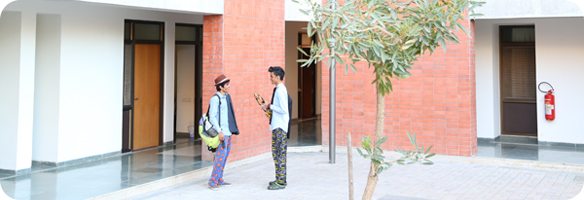
Living on Campus
Residential life at the Academy complements and extends the academic experience. Our residential programme includes a broad selection of activities and leadership opportunities to enhance students’ learning and growth.
The Academy’s residences include facilities to accommodate both students and teachers. Our residences house boarding students requiring accommodation as well as those participating in international exchanges between the Aga Khan Academy Hyderabad and other Academies and schools.
Teachers' quarters on campus house both resident and visiting faculty.
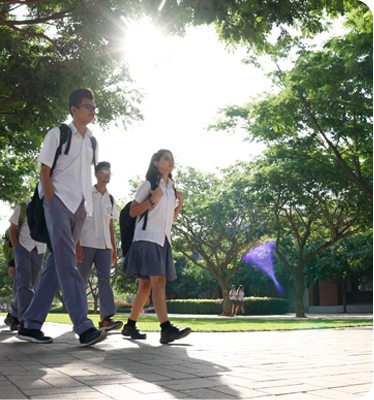 Learning beyond the classroom
Learning beyond the classroom
Our residential programme is about the learning and growth that comes through constant interaction with a diverse and talented group of teachers and peers.
Mealtimes and other gatherings provide our residential students with opportunities for informal interaction as well as for discussions, meetings, language tables and study groups.
The focus of the residential experience is on students’ intellectual, social, spiritual and physical growth in a structured and ethical environment. Many of the least tangible but most important elements of an education – the development of practical leadership skills, the capacity to make ethical judgments, the ability to navigate through complex cultural settings – are formed outside the classroom.
The safe and secure environment of the Academy’s boarding facilities gives students of all backgrounds the opportunity to thrive emotionally, intellectually and physically.
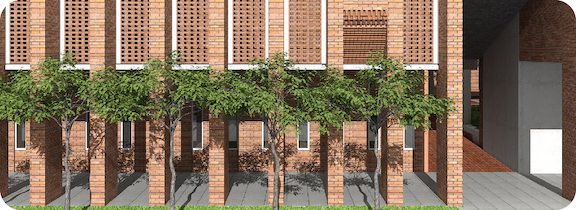
Living on Campus
Residential life at the Academy complements and extends the academic experience. Our residential programme includes a broad selection of activities and leadership opportunities to enhance students’ learning and growth.
The Academy’s residences include facilities to accommodate both students and teachers. Our residences house boarding students requiring accommodation as well as those participating in international exchanges between the Aga Khan Academy Dhaka and other Academies and schools.
Teachers' quarters on campus house both resident and visiting faculty.
 Learning beyond the classroom
Learning beyond the classroom
Our residential programme is about the learning and growth that comes through constant interaction with a diverse and talented group of teachers and peers.
Mealtimes and other gatherings provide our residential students with opportunities for informal interaction as well as for discussions, meetings, language tables and study groups.
The focus of the residential experience is on students’ intellectual, social, spiritual and physical growth in a structured and ethical environment. Many of the least tangible but most important elements of an education – the development of practical leadership skills, the capacity to make ethical judgments, the ability to navigate through complex cultural settings – are formed outside the classroom.
The safe and secure environment of the Academy’s boarding facilities gives students of all backgrounds the opportunity to thrive emotionally, intellectually and physically.
